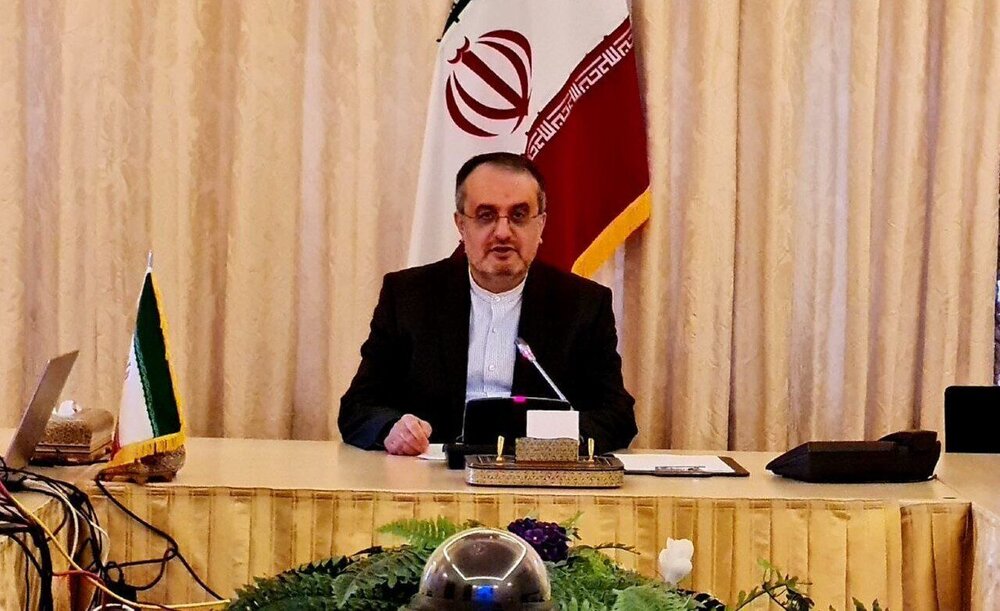IAEA will never get access to data of surveillance camera until JCPOA revived: envoy

TEHRAN - The International Atomic Energy Agency (IAEA) will never be given access to data recorded by surveillance cameras installed in Iranian nuclear facilities until the 2015 agreement, known as the Joint Comprehensive Plan of Action (JCPOA), is fully revived, Iran's acting ambassador to the IAEA has said.
Mohammad Reza Ghaebi made the statements while speaking to reporters on Thursday in response to the latest IAEA report on the verification of the 2015 deal's implementation.
According to Ghaebi, the IAEA report was simply a technical update presented by the Agency's director general on monitoring the implementation of the JCPOA in accordance with UN Security Council Resolution 2231, which provides the Agency's members with the most up-to-date information on Iran's nuclear activities.
Citing an IAEA “confidential report”, Reuters reported on Thursday that Iran is starting to run a new workshop at its nuclear plant in the central city of Natanz, which would create parts for uranium-enriching centrifuges using machinery relocated from its Karaj facility.
Ghaebi went on to say that the report showed Iran had informed the IAEA on April 4 that all centrifuge manufacturing machines have been transported from Karaj to Natanz, allowing inspectors to establish on the same day that the equipment were not operational.
“On April 12, the Agency finished installing all its cameras at the Natanz facility and had then removed the seals from the machines. Also, on April 13, Iran informed the Agency that the machines had started operating at the new workshop the same day,” the envoy explained.
“The Agency will have no access to information recorded on the memory of its cameras and as long as the U.S. has not returned to full compliance with the JCPOA, that information would not be made available to the Agency and will be stored in Iran,” Ghaebi underscored.
In a statement issued on January 31, the IAEA stated that Iran has notified the UN body that production of centrifuge rotor tubes and bellows will be relocated from the TESA Karaj Complex to the central city of Isfahan.
The IAEA acknowledged that Iran has told the Agency that it would alter its surveillance and monitoring procedures accordingly, saying that manufacture of centrifuge rotor tubes and bellows at the TESA Karaj Complex has ended.
On January 24, IAEA inspectors placed surveillance cameras in a new workshop in Isfahan to guarantee the equipment meant for the fabrication of centrifuge rotor tubes and bellows were being monitored, although production of the parts had not yet begun.
The Atomic Energy Organization of Iran (AEOI) was tasked by a bill enacted by the Iranian Parliament in December 2020 with blocking IAEA inspections and pushing the country's nuclear program beyond the constraints imposed by the 2015 nuclear accord.
The bill, known as the Strategic Action Plan to Counter Sanctions, banned any inspections of Iran's nuclear facilities outside the Safeguards Agreement, in an effort to persuade the U.S. to lift the sanctions.
Under both Hassan Rouhani's and Ebrahim Raisi's administrations, the AEOI has continued its constructive engagement with the IAEA while complying with the law.
Leave a Comment